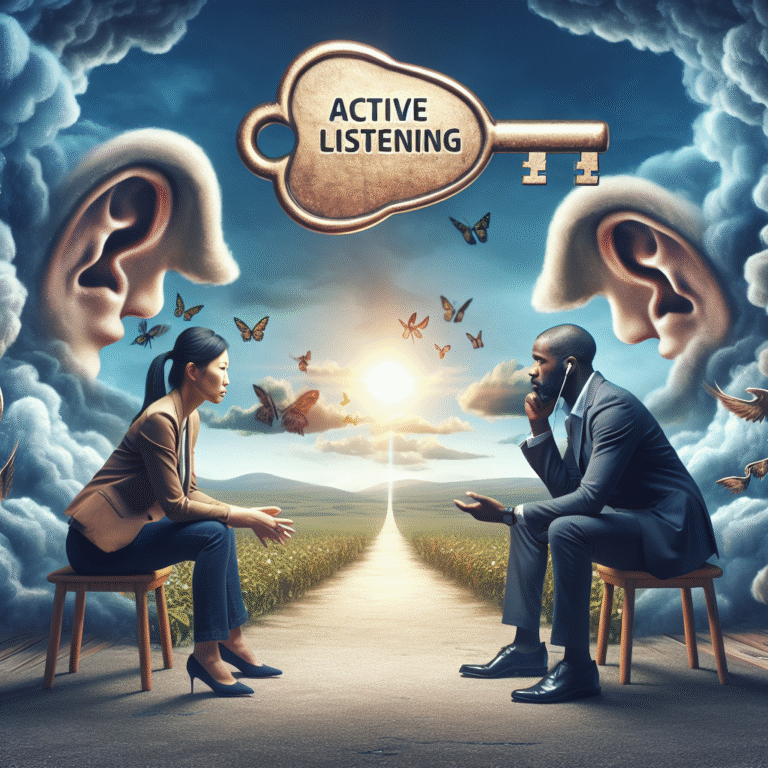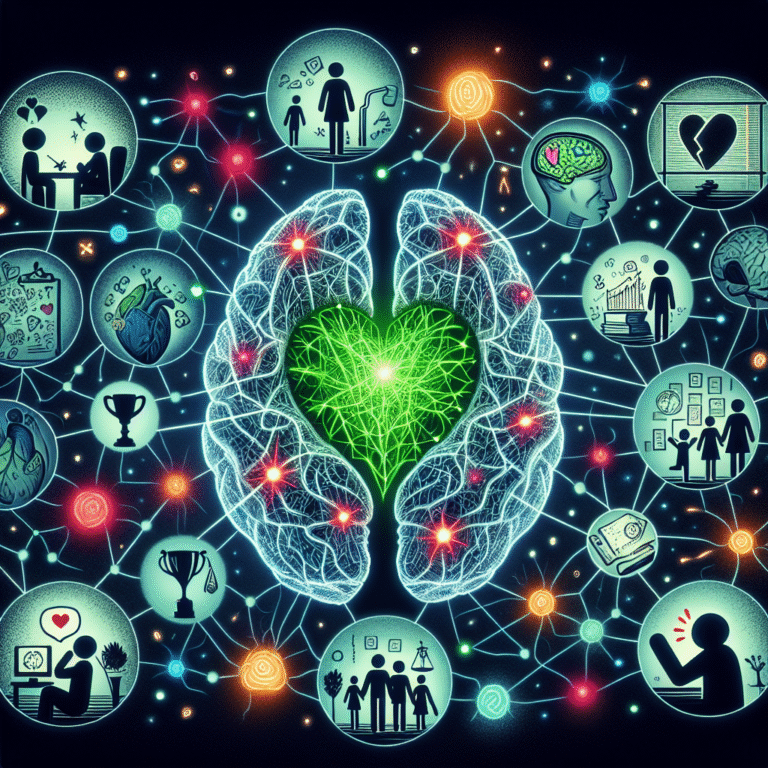
Introduction
Do you ever find yourself feeling inexplicably down, irritable, or restless? You might dismiss these feelings as mere mood swings or the stresses of everyday life. However, what if these emotional upheavals are rooted deeper in your biology? Unlocking the Secrets of Hormones: How They Shape Our Mood, Behavior, and Health reveals that hormones are powerful messengers in our body that can significantly influence our emotional state, behavior, and overall health. Understanding how these biochemical substances work can empower you to take control of your emotional and physical well-being like never before.
Hormones act as key regulators of various bodily functions, including sleep, appetite, stress response, and reproductive cycles. These chemical substances play an essential role in maintaining homeostasis, affecting us both physically and emotionally. The intricate interplay among hormones can be complex, but by demystifying their effects, we can unlock new doors to health and happiness. This article will delve deep into how hormones shape our lives and ways to harness their power for our benefit.
What Are Hormones?
Hormones are biological signals produced by the endocrine glands in our body, such as the thyroid, adrenal glands, and pancreas. These messengers travel through the bloodstream to target organs and tissues, influencing a wide range of physiological processes. There are many different hormones, each serving distinct roles. For example:
- Serotonin: Often called the "happy hormone," it regulates mood, anxiety, and happiness.
- Dopamine: Known as the "reward hormone," it is crucial for motivation and pleasure.
- Cortisol: Released in response to stress, it plays a role in metabolism and immune response.
- Insulin: Essential for glucose metabolism, it helps maintain energy levels.
Understanding how these hormones interact with one another and influence our overall health is crucial for unlocking the secrets of hormones and applying that knowledge effectively.
The Impact of Hormones on Mood
The Science Behind Mood Regulation
Numerous studies have shown a direct correlation between hormonal balance and mood stability. For instance, fluctuations in serotonin levels can lead to mood disorders such as depression and anxiety. According to a study published in the Journal of Clinical Psychiatry, individuals with major depressive disorder exhibited significantly lower levels of serotonin compared to healthy individuals.
A balanced hormonal environment enables proper neurotransmitter function, which is vital for mood control. Consider the following hormones:
- Cortisol: Increased levels can lead to heightened stress and irritability.
- Progesterone: In women, low levels during the luteal phase of the menstrual cycle can cause premenstrual syndrome (PMS), leading to mood changes.
To further illustrate, we can examine a case study involving the link between cortisol and mood. Researchers observed a group of participants subjected to stressful situations, documenting their cortisol levels before and after. The individuals with higher cortisol responses reported significantly increased anxiety levels compared to those whose levels remained stable.
Real-life Case Study: The Effects of Stress on Women
One poignant case study involved a group of women experiencing chronic stress related to work and family responsibilities. Over several months, researchers tracked their cortisol levels and mood swings. Those with consistently high cortisol experienced frequent bouts of irritability and anxiety, while those who implemented stress management techniques, such as mindfulness meditation, reported a significant reduction in both cortisol levels and mood fluctuations.
This case study underscores the importance of stress management in maintaining hormonal balance, which in turn aids in stabilizing mood.
Hormones and Behavior: The Connection
How Hormones Influence Decision-Making
The intricate relationship between hormones and behavior can often be seen in decision-making processes. For instance, research has demonstrated that testosterone can influence risk-taking and competitive behaviors. In a study published in the Journal of Neuroscience, participants administered testosterone showed a greater inclination towards riskier choices in gambling tasks compared to those who did not receive the hormone.
Real-life Case Study: Testosterone and Leadership
Consider the case of a corporate leadership program where participants were given testosterone supplements as part of a research study. The findings revealed that participants with higher testosterone levels exhibited more assertive and confident decision-making. Conversely, they also displayed increased aggression, leading to mixed outcomes in team dynamics.
This study illustrates that while hormones like testosterone can boost confidence and lead to assertive behavior, they can also create challenges if not balanced properly. Recognizing these effects can help individuals moderate their behaviors in various contexts, from career to personal relationships.
The Role of Hormones in Physical Health
Hormonal Balance and Well-being
Achieving optimal hormonal balance is not only essential for emotional stability but also plays a significant role in physical health. For instance, insulin resistance, characterized by poor regulation of blood sugar levels, can lead to severe health concerns, including obesity and type 2 diabetes.
A well-documented case study highlighted the impact of insulin on weight loss. Participants adhering to a low-carbohydrate, high-fat diet were able to lower their insulin levels and, as a result, experienced significant weight loss and improved metabolic markers. This underscores how unlocking the secrets of hormones can guide nutritional choices and promote health.
Chart: Hormonal Influence on Physical Health
| Hormone | Effect on Health | Related Issues |
|---|---|---|
| Insulin | Regulates blood glucose | Diabetes, obesity |
| Estrogen | Bone health | Osteoporosis |
| Thyroid Hormones | Metabolism booster | Hypothyroidism, weight gain |
| Cortisol | Stress response | Fatigue, sleep issues |
This simple chart effectively summarizes the critical roles hormones play in our health and well-being.
Techniques for Hormonal Balance
Diet and Nutrition
What we eat has a profound effect on our hormones. Nutrient-rich foods can promote hormonal health, while processed foods can disrupt hormonal balance. To optimize hormonal health, consider the following dietary recommendations:
- Whole grains and fibers: Stabilize insulin levels and prevent spikes in blood sugar.
- Lean proteins: Support muscle mass and promote healthy hormone production.
- Healthy fats: Essential for hormone synthesis, especially cholesterol for steroid hormones.
Exercise: A Natural Hormone Regulator
Regular physical activity is a powerful tool for hormonal balance. Exercise stimulates the release of endorphins, serotonin, and dopamine, which are integral to mood regulation and emotional well-being. A comprehensive review published in the Journal of Health Psychology demonstrated that moderate to high-intensity exercise was linked to significant improvements in mood and reductions in depression symptoms.
Mindfulness and Stress Management
Incorporating mindfulness practices, such as meditation or yoga, has been shown to reduce cortisol levels. Particularly, a meta-analysis in the Journal of Psychosomatic Research concluded that mindfulness-based interventions could effectively lower cortisol levels and consequently improve mood and well-being.
Conclusion
In conclusion, unlocking the secrets of hormones: how they shape our mood, behavior, and health is more than just a fascinating scientific endeavor; it is a vital part of ensuring our daily well-being. Through this exploration, we’ve uncovered how hormones influence mood and behavior, the importance of dietary and lifestyle choices, and techniques to achieve hormonal balance. As we learn about these powerful messengers and their effects, we can actively implement strategies to improve our mental health and overall quality of life.
Understanding our hormonal landscape gives us undeniable power. By making informed lifestyle choices and embracing stress management practices, we can influence these chemical messengers favorably. So, take charge of your hormonal health today—your mood, behavior, and overall health will thank you for it.
FAQs
1. What are the primary hormones that affect mood?
Several hormones influence mood; among them, serotonin, dopamine, cortisol, and progesterone are the most significant. Understanding their roles can help in managing mood disorders.
2. How does diet impact hormonal balance?
Diet plays a crucial role in hormone production and regulation. Consuming whole foods, lean proteins, healthy fats, and fiber can promote balanced hormone levels.
3. Can exercise help balance hormones?
Absolutely! Regular physical activity can enhance hormone regulation, improve mood, and decrease stress by optimizing the release of endorphins and other mood-affecting hormones.
4. What lifestyle changes can I make to improve my hormonal health?
Incorporating a balanced diet, engaging in regular exercise, practicing mindfulness, and managing stress can contribute significantly to hormonal health.
5. How can I detect hormonal imbalances?
Common signs of hormonal imbalances include drastic mood changes, irregular sleep patterns, unexplained weight changes, and persistent fatigue. Consulting with a healthcare provider can help identify specific hormonal issues.
With an understanding of how to unlock the secrets of hormones, you can take proactive steps towards achieving better mental and physical health, enhancing your overall life satisfaction. Remember, small adjustments can lead to remarkable transformations!














